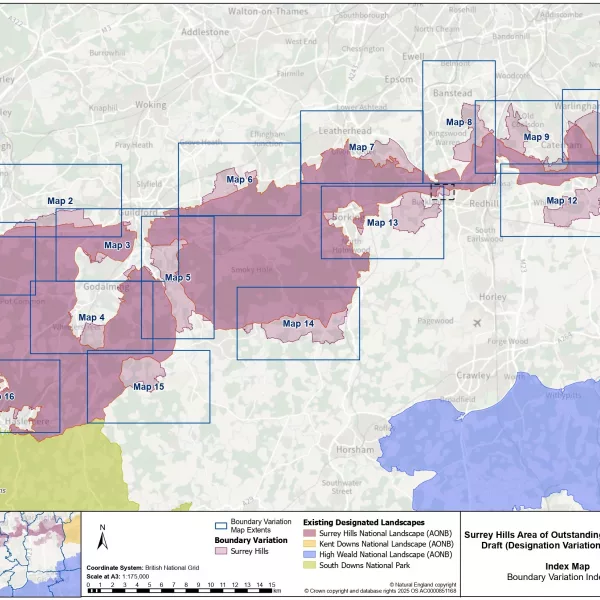
Less than two weeks left to comment on Central Government’s proposed ‘Accelerated Planning Service’ and other key changes
You may recall towards the end of 2023 that the new Levelling Up and Regeneration Act received Royal Assent, bringing in various planning reforms with the aim of streamlining and speeding up planning processes.
As part of these ongoing reforms, four key changes are now proposed which include:
- An ‘Accelerated Planning Service’
The Accelerated Planning Service would see higher planning application fees, with a guaranteed determination timescale of 10 weeks for major applications, 3 weeks fewer than the current statutory timeframe. It is unclear what sort of fees we are looking at here, but we imagine they will be set at a significant premium. If the application is not determined in 10 weeks, an automatic refund is triggered, with potential for a phased repayment (eg. 50% at 10 weeks and the remaining 50% if not determined by week 13). - Changes to extensions of time (EoT)
It is proposed to remove EoTs (whereby a Local Authority can request agreement from the applicant to additional time to determine an application) for householder applications entirely and restrict other developments to one EoT only. At the same time, performance would be closely monitored and require 50% or more of major applications to be determined within the statutory timeframe, and 60% or more for non-majors. - Simplified written representations appeals
In an aim to speed up the appeals process, a simpler procedure is proposed whereby only the original planning documents and an appellant’s brief statement may be submitted to the Inspectorate. No additional information or evidence could be provided that was not part of the original planning submission. - Implementation of Section 73B to vary planning permissions
The new Section 73B route for existing planning permissions would allow for changes that are not “substantially different” from the original permission. Variation of conditions would remain under the existing S73 route.
One of the key objectives of S73B is to overcome issues regarding changes to the description of development and the current necessity to submit multiple application types to achieve this (in line with case law, it has been established that any permission granted under S73 cannot alter the original description of development, meaning a separate S96A application would be required to do so). The new S73B would allow for changes to the description and amendment of conditions under a single application type.
Whilst in theory, the principle of an Accelerated Planning Service can only be considered as positive, the question really must be how this will be applied and facilitated in practice. The current use of Planning Performance Agreements provide additional funding for councils and can help speed up the planning process, but ultimately the determination of a planning application is not just related to the amount of funding allocated to the project, but also to the number of consultees involved in a single application and the availability and workload of those consultees. Local authorities would certainly need to increase staff numbers (as has been the case for many years now), but it is unclear if there is scope to do so if funding is provided on an ad hoc basis as suggested.
When considering this in tandem with the changes to the EoT rules, could this leave a large number of applications undetermined and local authorities stretched even further by having to refund considerable fees? Also, will there be an interim period while the recruitment drive commences or allowances for authorities who cannot recruit?
The simplified appeals process is another positive step, but it is unclear whether this would actually result in decreased timescales for appeal decisions given that only limited additional information can be submitted under the current procedure. However, for local authorities, removing the need to submit an appeal statement may help to ensure that resourcing is focused on current planning applications.
Finally, S73B seeks to allow for more flexibility in terms of varying existing permissions which we would generally consider a welcome change. As always, there will be ongoing discussions and case law emerging from this, defining the meaning of “substantially different” and the extent of changes that can be secured through this new legislation, over and above what can already be secured through S73. Similarly, there will undoubtedly be overlap between S73 and S73B and it is hoped that the new legislation will provide better clarity on such matters.
Notwithstanding the unknowns at this stage, the proposed legislation can only be viewed as positive and we will be watching keenly as more detail emerges.
Consultation on the above has been ongoing since 6 March 2024 and is set to end at 11:59pm on 1 May 2024, meaning under two weeks are left to comment on the proposed changes. We would be keen to hear your thoughts on these changes or answer any questions you may have so please do get in touch.
Other news
See all

London Housebuilding: Emergency Measures
The Government and GLA are currently consulting on two documents aimed at stimulating and reviving housing delivery across London, in response to a…...
Read now
Surrey Hills Area of Outstanding Natural Beauty - Boundary Extensions: Last opportunity to make representations
Natural England have given notice of their intention to Vary the Designation Order to include boundary extensions to the Surrey Hills Area of…...
Read now